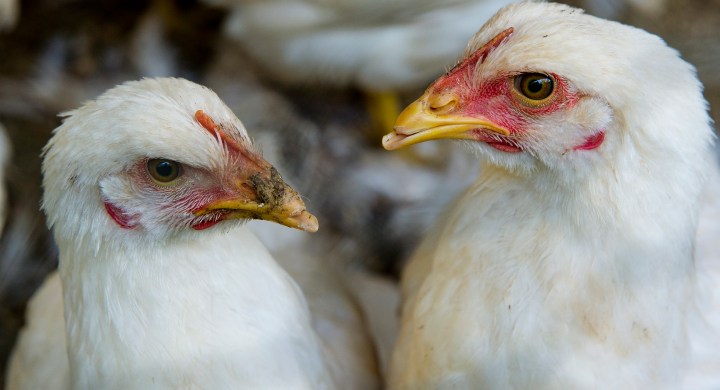BUSINESS MAVERICK
Right of Reply: Brazilian dumpers doth protest too much

A recent Bureau for Food and Agricultural Policy competitiveness study proved that South Africa has a globally efficient industry, yet Brazilian chicken floods our market in such volumes that it exceeds the production of even the biggest local producer. This is not ‘helping to meet local demand’ or ‘ensuring healthy competition’ — this is doing material damage to an industry that is a significant provider of employment and food security in South Africa.
The SA Poultry Association has noted claims by CEO of the Brazilian Animal Protein Association Ricardo Santin that “Brazilian poultry producers are not dumping chicken”.
This follows identical arguments by other Brazilian officials surfacing in other media, including another CEO of the same association — after the Namibian and South African poultry industries jointly expressed concern about the flooding of these local markets by cheap Brazilian imports, which threaten African jobs and the existence of local industries.
Santin backs his protestation by stating that South Africa is a “valued partner”. That is one statement in a flawed argument that cannot be denied… the southern African market has increasingly become a convenient repository for millions of tons of unwanted bulk-frozen chicken leg quarters that are the byproduct of Brazil’s lucrative exports of white breast meat to the United States and the EU, where consumers pay a premium for these cuts.
Santin states categorically that a WTO panel had in the past “concluded that Brazilian producers did not practise dumping” — a claim that is simply untrue. The fact of the matter is that back in 2012 ITAC already found enough evidence of dumping that it twice recommended the imposition of antidumping duties on whole birds and boneless cuts from Brazil.
When Brazil challenged this decision at the WTO, dumping was not disproved, as he claims. Rather, it was decided for precisely the reason of partner nation neighbourliness not to pursue anti-dumping duties, but to opt for a review of the Most Favoured Nation (MFN) duty instead.
In the intervening years Brazil has been taking advantage in a most unneighbourly fashion, ramping up exports until 61% of all chicken imports now come from Brazil, and selling at prices that the South African Poultry Association (SAPA) believes to be between 100% and 190% lower than it charges other countries and much lower than the actual cost of production. If that is not dumping, Mr Santin might want to explain what is.
Santin calls SAPA’s challenge of this predatory trade practice “protectionist” and offers up the fact that only about 500,000 tons of chicken consumed in South Africa are imported from countries such as Brazil. Let it be noted that this represents about 24% of the entire market, a bigger volume than the output of even the biggest single South African producer.
If you bear in mind that the EU, for instance, keeps imports strictly within 7% of market volumes, it is preposterous that Santin can expect South Africa to simply nod and accept more than three times more while its own industry contracts. But if you consider that Brazil is presently the source of 61% of all those imports, it makes sense why Mr Santin is protesting so much. Who is being protectionist now?
What is at issue here is the damage that dumping does. Dumping prevents expansion, inhibits job creation and stops emerging farmers from entering the market and becoming landowners. This is the experience in South Africa, and now also in Namibia, and no amount of posturing about the importance of trade partnerships can change that.
The recent Bureau for Food and Agricultural Policy competitiveness study proved that South Africa has a globally efficient industry, yet Brazilian chicken floods our market in such volumes that it exceeds the production of even the biggest local producer.
This is not “helping to meet local demand” or “ensuring healthy competition” — this is doing material damage to an industry that is a significant provider of employment and food security in South Africa. The Namibian industry, being only six years old, faces the prospect of never reaching sustainability in the face of the deluge from Brazil, which ironically allows hardly any imports into its own market — surely to protect its own overproducing farmers.
The true partnership goes both ways. What is playing out between Brazil and southern Africa is skewed in favour of one country and one country only, and that cannot remain unchallenged. DM
Izaak Breitenbach is the General Manager of SAPA’s Broiler Organisation.




















 Become an Insider
Become an Insider